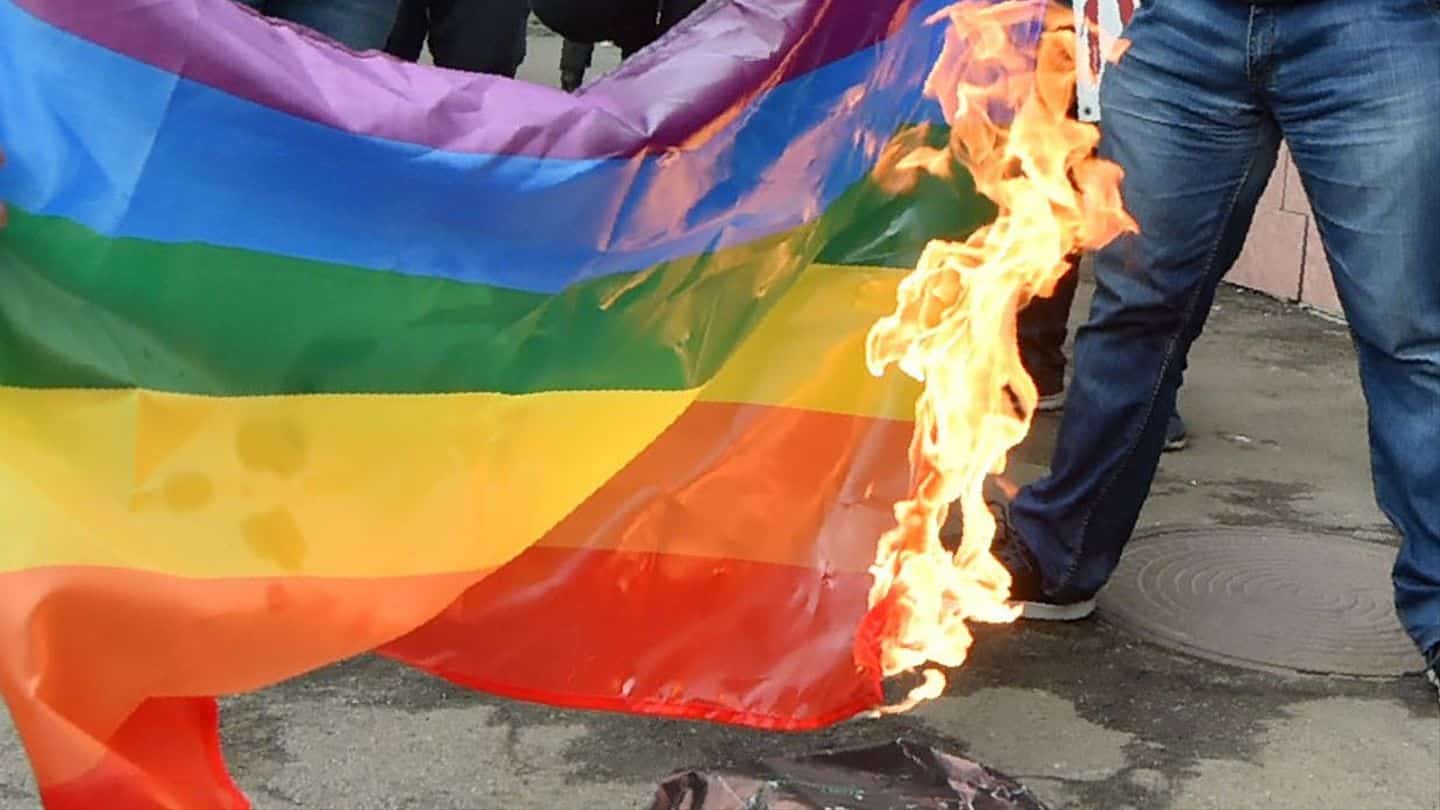Homophobia and homophobia has many facets

Homophobia in everyday life is more topical than ever, also in Germany. Many queers encounter homophobic people - maybe not every day, but still regularly.
The unpleasant experiences are often obvious. But indirect homophobia is also widespread.
Often these are certain acts and statements that discredit homosexuals and show that there is definitely still a long way to go to tolerant interaction.
More appearance than reality?!
In Germany, same-sex marriage has long been legally recognised. After all, more than 80 percent of Germans are in favour of more tolerance. Unfortunately, however, this sometimes only applies until said tolerance is not too clearly demanded or perhaps even civil courage would be appropriate.
A study by the Federal Anti-Discrimination Agency clearly shows that many people still have a problem with direct confrontation with the topic of homosexuality.
About 40 % say that they would find it disconcerting if their child turned out to be gay would come out. Another 38% do not want homosexual men in particular to show their love openly. Kissing and holding hands are already considered a no-go here.
This - apparent - tolerance then ensures that subliminal homophobia can take over, even though the statistics actually seem so promising.

An exciting topic for discussion: what is funny and what is not?
Many things that used to be merely funny and certainly not meant in a bad way are now considered homophobic by many people. Among others, it was Stefan Raab, Bully Herbig and Co. who obviously included homosexual roles in their programme or show.
Bastian Pastewka also made the masses laugh as Brisko Schneider, while the creator of "TVtotal" portrayed homosexuals as lacquer and leather fetishists with special preferences.
These and other attitudes have managed to survive until today, but are now interpreted differently against the background of a living homophobia in society. This is despite the fact that they were originally only meant to entertain and that quite a few queers also enjoyed the completely exaggerated characters.
However, the fact that pink, garish characters who represent pretty much all the stereotypes that can be associated with gay men are being discussed is more important than ever these days. Times are changing and especially now, when violence and hatred against queers unfortunately still plays a role for many, it is essential to make a statement and show that the average gay man just doesn't live like Winnietouch on the "powder pink ranch". Shockingly, many homophobic people have exactly this image in their minds.
Indirect homophobia and the danger of trivialisation
"faggot", "Tucke", "Tranny" and other terms have now become swear words, often even used in the schoolyard. Especially statements like "I am not homophobic, but..." often make homosexuals and queers angry. After all, it is known what statements follow the famous "but".
The consequences of this "harmless banter" are - among other things also in the age of social media - often worse than expected.
Especially young people who are often on the internet then feel uncomfortable with their sexuality and wish to be "normal".
Self-esteem is diminished, and in the worst case this can lead to depression. Psychologists often speak of the "enemy within" in this context. Homosexuals believe that they would make a mockery of themselves if they came out.
Therefore, it is even more important to react to indirect homophobia and to educate people. Children in particular are often not aware of what "faggot" even means. The earlier a distinction is made between TV fiction or prejudice and reality, the better. Because: many "jokes" are not harmless but highly hurtful, even if this may not be comprehensible to non-queers.
Do you already know the latest trend? More and more men resort to cosmetic surgery!
Keine Kommentare vorhanden